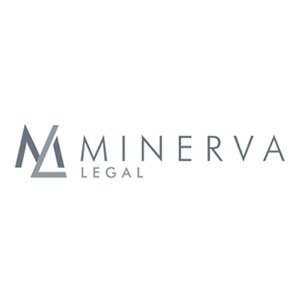About Pension Law in Lagos, Nigeria
In Lagos, Nigeria, the law governing pension matters is the Pension Reform Act 2014 (PRA 2014), which is a Federal Law, covering the entire country, including Lagos. This Act established a Contributory Pension Scheme (CPS) where both the employee and employer contribute to the employee's retirement savings. Employees contribute a minimum of 8% of their monthly income, while employers contribute at least 10%, making a total of at least 18% monthly contributions to retirement savings. The National Pension Commission (PenCom) is the body that regulates pension matters in Nigeria.
Why You May Need a Lawyer
Though the pension system in Lagos, Nigeria is designed to be straightforward, certain challenges can necessitate the service of a lawyer. Situations such as disputes over pension entitlements, delays or non-payment of accrued pension benefits, negligent handling of pension funds by pension fund administrators, and cases of employment termination or redundancy without appropriate pension provisions can require legal expertise. A lawyer specializing in pension law can provide guidance, represent your interests, and help you navigate the complexities of pension regulations.
Local Laws Overview
Fundamental to understanding pension law in Lagos is the PRA 2014. This law mandates employers with up to three employees to contribute to the CPS. It also prohibits the utilisation of pension funds as collateral for loans, either by the pension holder or administrators. Moreover, the law ensures the protection of pension funds from creditors and prohibits the transfer of rights and obligations under the scheme. Another key aspect of the law is the guaranteed minimum pension ensuring that no matter how small a person’s total pension contribution might be, he or she is entitled to a minimum pension at retirement.
Frequently Asked Questions
1. Can I personally manage my pension fund in Lagos, Nigeria?
No, the Pension Reform Act (PRA) of 2014 does not permit individuals to manage their pension funds. All pension funds are to be managed by Pension Fund Administrators (PFAs), licensed by the National Pension Commission (PenCom).
2. What happens to my pension fund if my employer fails to remit contributions?
If an employer fails to remit contributions within 21 days following the month of deduction, such employer may face legal sanctions, including fines and imprisonment. You should engage a lawyer to help in such a case.
3. Can I access my pension fund before retirement?
Generally, you can only access your pension fund upon retirement. However, there are exceptions. Based on the PRA 2014, you can access 25% of your Retirement Saving Account (RSA) balance if you are out of employment for four months and above.
4. Can my pension be transferred to another Pension Fund Administrator?
Yes, you can transfer your Retirement Savings Account from one Pension Fund Administrator to another if you are not satisfied with their services. This is known as the Transfer Window and it's powered by the National Pension Commission.
5. Can the government borrow from the pension fund?
Yes, the government can borrow from pension funds. However, such a loan must be revenue-generating and the government must meet specific conditions set by the National Pension Commission.
Additional Resources
For additional help and information regarding pension laws, you may visit the National Pension Commission (PenCom) website. This site provides relevant laws, regulations, and guidelines on Nigerian pension matters. The Nigerian Bar Association can also provide legal assistance on pension matters.
Next Steps
If you require legal assistance in pension matters, it might be necessary to hire a lawyer specialising in pension law. Seek advice from the Nigerian Bar Association or legal professionals with a good understanding of pension matters. Ensure you compile all necessary documents such as your pension account statement, employment contracts, and any correspondence related to your pension.
Lawzana helps you find the best lawyers and law firms in Lagos through a curated and pre-screened list of qualified legal professionals. Our platform offers rankings and detailed profiles of attorneys and law firms, allowing you to compare based on practice areas, including Pension, experience, and client feedback.
Each profile includes a description of the firm's areas of practice, client reviews, team members and partners, year of establishment, spoken languages, office locations, contact information, social media presence, and any published articles or resources. Most firms on our platform speak English and are experienced in both local and international legal matters.
Get a quote from top-rated law firms in Lagos, Nigeria — quickly, securely, and without unnecessary hassle.
Disclaimer:
The information provided on this page is for general informational purposes only and does not constitute legal advice. While we strive to ensure the accuracy and relevance of the content, legal information may change over time, and interpretations of the law can vary. You should always consult with a qualified legal professional for advice specific to your situation.
We disclaim all liability for actions taken or not taken based on the content of this page. If you believe any information is incorrect or outdated, please contact us, and we will review and update it where appropriate.

















